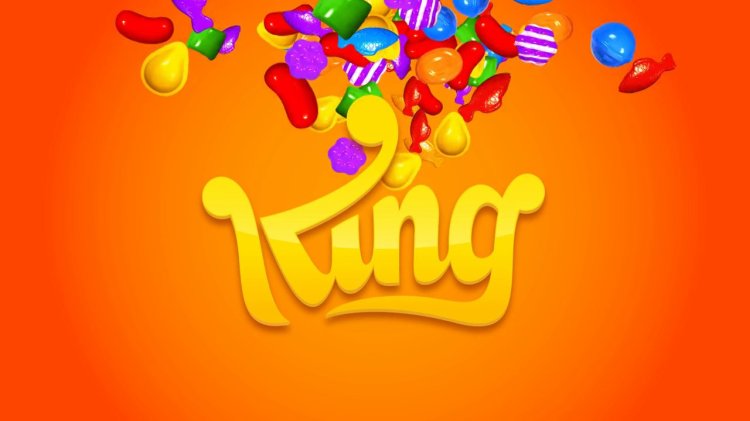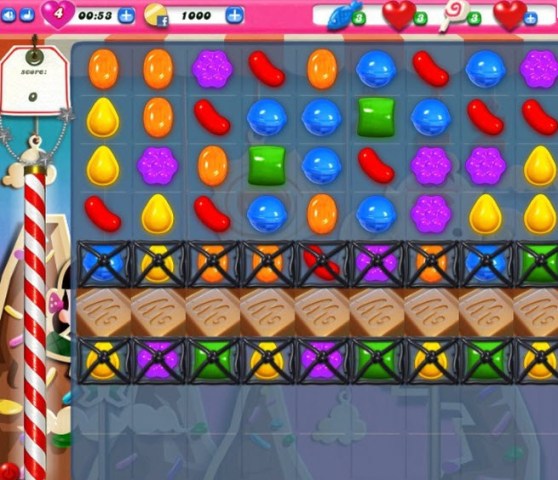How King operates
This is where it’s appropriate to describe King and how it operates, as we described before in our own analysis of King. While Privco says there isn’t much of a pipeline, King definitely has a methodology.
King is based in London, and it has its major studios in Stockholm, Sweden. For filing purposes, however, the company has classified itself as an Irish company, based in Dublin. During its rise, King has seen many industry-changing events, such as the shift to social gaming, the rise of mobile, games as a service, the growth of the casual audience, and the free-to-play business model.
The company has been patient and methodical since its founding as Midasplayer in 2002. It first became profitable in 2005 on casual games that often involve puzzles and are easy to learn but hard to master. King published hundreds of casual games on its King.com website and attracted about 10 million users. Once Zynga started making a splash on Facebook in 2008 and got hundreds of millions of users, King turned its focus to social games to join in on the action. Zacconi watched Zynga’s growth closely and wanted to capture some of the magic it had in getting large numbers of users so quickly.
King’s earlier games were modest when it came to social features. The company was publishing about 15 games a year on its website, but it was slow to shift to Facebook at first. When it launched Bubble Witch Saga and later Candy Crush Saga on the social network, the games shot to the top and gave Zynga some serious competition for the first time. King captured a shift that was happening on Facebook and on mobile as players shifted from simulation games like FarmVille toward faster, arcade-like games with shorter playing cycles. Those games were easier to play while waiting in line at the coffee house, and Zacconi says his company is focused on creating “bite-size brilliance.”
Zacconi’s teams, led by seasoned leaders like Tommy Palm in Stockholm, created and debugged Facebook games one at a time. Then, once they were ready, they launched them on mobile platforms such as iOS. They did it that way because it wasn’t as easy to quickly debug and update games on mobile. Once the teams had the virality and monetization figured out, they launched the titles. So King had a big funnel of a few hundred web games, a smaller number of Facebook games, and a handful of mobile titles.
In contrast to Zynga, which increased its payroll to 3,000 employees, King kept its teams small. Palm led a team of three that worked on a mobile version of Candy Crush Saga, which took advantage of the rapid adoption of smartphones and tablets by the hundreds of millions. The Candy Crush designers created hundreds of levels so players would never run out of something to play. They continuously updated the game. Other titles in the Saga series are similar, with hundreds of levels and plenty of social hooks to keep gamers playing with their friends. King’s games are cross-platform, enabling players to stop on one device and pick up the game on another.
In its filing, King said this process was “repeatable and scalable” and that King has 180 game properties that it owns. It’s not clear how many of those game properties will lead to repeat hits on mobile.
For investors, that’s the crux of the question. Will it keep on producing the hits? By comparison, King has more mobile revenues than Electronic Arts, which has more than 900 mobile games. EA has hits such as The Simpsons: Tapped Out, but it just hasn’t come up with a game with staying power to occupy the No. 1 or No. 2 position for a year like Candy Crush Saga has.
Another analyst’s view
Arvind Bhatia, an analyst at brokerage firm Sterne Agee, noted that Candy Crush Saga is tracking at about 20 percent below its peak booking levels. So the future growth of the company depends on its ability to diversify. Farm Heroes Saga, which was released on iOS and Android in January, has been gaining momentum, growing from 8 million daily active users to 20 million from December 2013 to February 2014.
At an IPO price range of $21 to $24 a share, King expects to have earnings multiples of around eight to nine times adjusted earnings before income tax, depreciation, and amortization. That’s below the average of 10 times for Activision Blizzard and Electronic Arts. Bhatia predicts year-over-year bookings growth of 32 percent in 2014 and 4 percent in 2015.
As noted by Privco, Bhatia said that revenue concentration in one hit is the No. 1 issue. While King has lots of intellectual properties, three titles accounted for 95 percent of bookings in the fourth quarter. He notes that on Facebook, where King has twice the number of games as on mobile, Candy Crush is only 58 percent of revenues.
What other game bosses think
Compared to the analysts, industry CEOs are much more excited about the prospects for a King IPO.
“It used to be that you were either a gamer or you weren’t because you had to buy a console. It was a pretty binary thing,” said Walter Driver, the chief executive of mobile-game publisher Scopely, in an interview. “Now everybody has a gaming device. Crossing the line into playing games is very easy to do. That’s how you have [93] million people playing Candy Crush every day.”
Meanwhile, Owen Mahoney, the chief executive-elect of online game-maker Nexon, told GamesBeat, “I’d say that, in general, there’s an interesting valuation difference between public and private. There’s a reasonably high valuation for private companies and a reasonably lower valuation for public ones. We’ll see what happens with the King IPO.”
He added, “My personal view is, that’s what makes a market. From an investor relations perspective, sometimes I don’t like the valuation differences, but from a corporate development perspective, I do. Sometimes it’s the opposite. Right now, I wish there were more reasonably priced private companies. But you always want more of something that you think is good. There are several very good private game companies. Public investors, I think, have been burned, or they feel they’ve been burned by other companies in our industry. They’re pretty skeptical, as a rule. But things like platforms end up going in and out of fashion for investors. Content goes in and out of fashion. It depends on the year.”
Phil Sanderson, a partner at venture capital firm IDG Ventures, said in an interview, “I also believe the King initial public offering is going to be a seminal transaction in the gaming space. It’ll lift that Zynga effect, which has kept a lot of investment down. We started to see a lot of VCs exit the market. When I talked to entrepreneurs, they complained that very few people were making game investments, and that’s still the case. But in venture, it’s often beneficial to be counter-cyclical, to be a contrarian. We know that markets wax and wane. I see a trend happening in gaming that’s starting to wax.”
Sanderson added,”Candy Crush has 93 million daily active users. It’s massive. But if you look at King, they have a platform to make mobile games. Pet Rescue Saga is a real game. There are 20 million daily active users. It’s casual, but it makes a lot of money. Even though King’s revenue declined last quarter, they still did $1.9 billion in revenue in the year. King will be a successful IPO, I think, and it will change people’s views of the market. People will realize that you can make a lot of money in gaming. At that point, valuations will be a lot higher.”
DeWolfe at SGN said, “I’d plan on being self-sufficient as much as possible. There’s not a lot of money going into startup gaming companies. To the degree that you can prepare yourself for fallout in case King stumbles, that’s always a good thing, to be self-sufficient. I was happy that we were self-sufficient when Zynga stumbled because no matter how well we were doing, we couldn’t have raised money during that period of time. Now things are substantially better. The multiples are way better than they would have been a year ago. If King does well, it’s smooth sailing for a long time.”
He added, “If you look at Candy Crush, it’s the past coming back. It’s an old game mechanic, a proven and tried game mechanic, with much better art, much better gameplay, a lot of times a story behind it. Looking to the past and reimagining something that’s been popular in the past, but putting a new spin on it with better art and a new story, is the trend that we’re seeing right now.”
VentureBeat's mission is to be a digital town square for technical decision-makers to gain knowledge about transformative enterprise technology and transact. Learn More









![Reblog this post [with Zemanta]](http://img.zemanta.com/reblog_e.png?x-id=cc1b2ef8-f4da-4fe4-8b10-21fa7fc18bd0)
